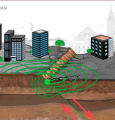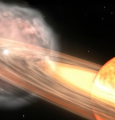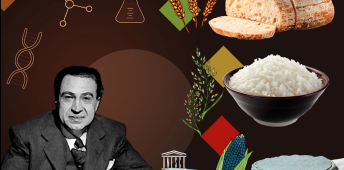Is a vaccine against cancer possible?

Currently, one of the most important challenges facing science is the development of a vaccine against cancer, a disease caused by abnormal cell growth that kills millions of people around the world.
Sometimes mutations occur in certain genes that cause some cells to multiply uncontrollably and spread to other parts of the body. These cells can form cancerous or benign tumors.
Can this process be stopped or contained with a vaccine? Scientists around the world are trying to achieve this, although the principle of action of the product will be different from the principle of action of known vaccines against viruses or bacteria.
Known vaccines
Its general mechanism is to “train” the immune system to fight disease. This is achieved because the vaccine contains an antigen (a small part of a virus or bacteria or a weakened form thereof), and the immune system “learns” to produce specific antibodies and T cells against it, such as influenza or measles viruses. .
In the case of cancer vaccines, everything is much more complicated, since the genes that mutate in each patient are different, and cancer cells are very similar to healthy cells in our body, explains Dr. Karen Manucharyan, a researcher at the Cancer Institute. Biomedical Sciences UNAM.
Read also

It states that cancer vaccines are therapeutic rather than preventive; They are used as a treatment once a person is diagnosed with a disease.
However, cancer vaccines and vaccines used to prevent viral and bacterial diseases have some common features, such as the problem of effectiveness against constantly mutating agents such as the influenza virus, COVID-19 and HIV, which are both vaccines. viral vaccine, and in cancer vaccines the “target” is constantly changing.
Another similarity is that the idea of “training” the immune system to recognize and eliminate malignant cells is also prevalent.

Types of vaccines.
Individual vaccines
Cancer tumors are different for each patient and each has its own antigens, which requires the development of personalized vaccines. It is now possible to identify certain molecules or antigens that are found in cancer cells but not in healthy ones.
Finding the most suitable antigens and effectively incorporating them into a vaccine is essential to obtain a good immune response. The problem is that gene mutations in tumors occur at an extremely high rate, and when this type of vaccine is used, it is no longer effective.
This is similar to what happens with the flu and COVID-19 viruses, and is the reason why vaccines need to be updated every year.
There are still few therapeutic vaccines that can be used to treat cancer patients. An example is the method used against prostate tumors, which managed to prolong the patient’s life from two to four months, but its cost is very high.
Read also

For several years now, Dr. Manucharyan’s laboratory at the Biomedical Research Institute has been looking for an answer to the question: what to do to fight both pathogens and cells that mutate very quickly.
This group of researchers’ proposal to develop a cancer vaccine is different from what is being worked on in other parts of the world. It consists of artificially introducing thousands and millions of mutations in the most common antigens for each type of cancer.
The idea is to create a vaccine for each tumor from a mixture of millions of mutations of the most common antigens of that type of cancer. Thus, when using a vaccine, the patient receives a significant number of mutated epitopes (fragments of antigens recognized by the immune system) that do not yet exist in his body.
This will allow the immune system to be activated before certain mutations form in the patient’s body. Let’s say that this vaccine will “get ahead” of the evolution of disease antigens in order to control possible mutations.
The immunologist says this is a new concept that has been tested against different types of breast cancer in mice, and in particular his team worked with a very aggressive type of breast cancer where there was a positive outcome and long-term survival. in 77% of cases.
So far, all the results obtained have been encouraging and have been published in scientific journals. There is still a long way to go in developing this type of vaccine, but the researcher is confident that his team’s proposal is on the right track.
*Cooperation of the General Directorate for the Dissemination of Science of UNAM.
Read also

